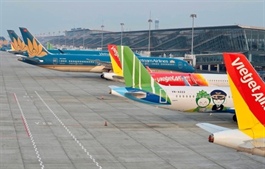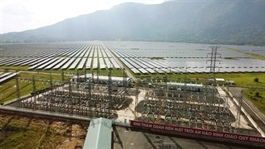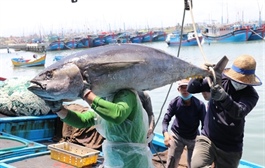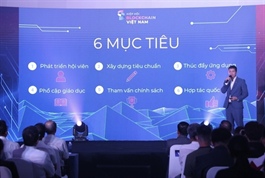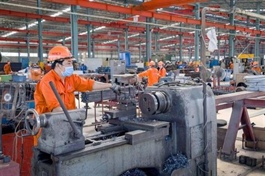Hanoi emerges major luxury brand destination in Southeast Asia
Hanoi emerges major luxury brand destination in Southeast Asia
According to local experts, Hanoi is fast becoming a hotspot for luxury brands in Southeast Asia.
The development of high-end hotels and luxury apartments in Hanoi and other localities is expected to attract high-end tourists and shoppers, creating opportunities for luxury brands to enter the market.
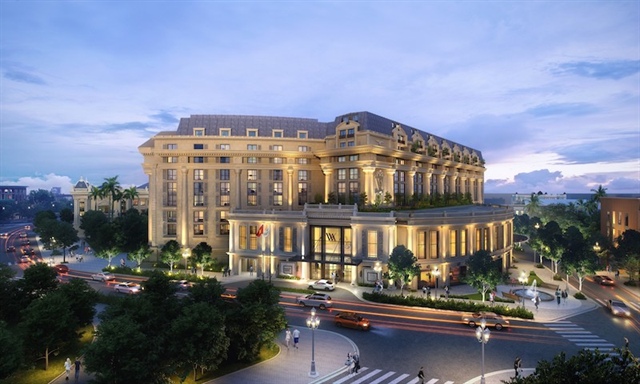
Waldorf Astoria Hanoi will be converted from the Hilton Hanoi Opera and is scheduled to open in 2025. Photo: HBA Architecture |
Hoang Dieu Trang, senior manager of commercial leasing at Savills Hanoi, said luxury brands used to choose locations or set up shop in main streets or commercial centers where many outlets of well-known fashion brands in regional and global markets have been present for years.
Hanoi, the capital of Vietnam, has become a popular destination for high-end fashion and hospitality brands such as Dior, Louis Vuitton, Tiffany & Co. and Berluti. The imminent presence of iconic names such as Four Seasons, Fairmont, Waldorf Astoria, and Ritz Carton will create new luxury shopping complexes in the retail market, signaling a diversification of their market strategy in Southeast Asia.
"The expected arrival of luxury hotels in Hanoi is hoped to create a new high-end shopping complex and attract more luxury brands to this promising market," she added.
She emphasized that Vietnam is considered one of the top three emerging markets in the region for premium brands to enter and start their expansion plans in Southeast Asia.
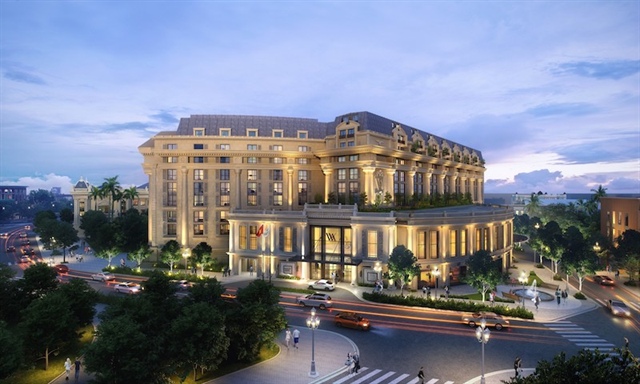
Louis Vuitton International Store Hanoi is located at Ngo Quyen Street, Hoan Kiem District, the heart of Hanoi. Photo: Louis Vuitton |
Savills' latest report showed that the increasing demand for luxury goods and services in Vietnam is a vital driver of this trend. German website Statista estimates that the luxury retail market in Vietnam will reach $957.20 million in sales by 2023, with a projected annual growth rate of 3.23% for 2023-2028.
Along with Singapore and Thailand, Vietnam is one of the favored markets for luxury brands, benefiting from positive economic developments, a growing number of high-income individuals, and a shift in consumer behavior toward luxury goods, according to the report.
A World Bank report shows that Vietnam's economy is expected to grow 6.3% in 2023 despite global headwinds. For 2021-2030, the National Socio-Economic Development Plan targets an average annual GDP growth rate of around 7% for the country. By 2050, the average GDP per capita is expected to reach about $27,000 - $32,000 at current prices.
Figures from the General Statistics Office also indicate that domestic consumption has gradually resumed growth, with total retail sales of goods and revenue from consumer services in the first four months of 2023 increasing by 26.7% compared to the first four months of 2019 - the pre-Covid-19 year.
“After the Covid-19 and the political changes in recent times, especially with some markets imposing strict travel and tourism restrictions like China and Hong Kong, luxury brands have tended to choose and expand their presence in new emerging markets, including Vietnam,” Trang said.
However, the lack of quality retail space remains a challenge for luxury brands in Hanoi, according to Trang. Luxury stores typically require prime locations with large floor areas and good visibility to attract high-end customers. Hoan Kiem District, the heart of Hanoi, is still ideal for luxury brands due to its central location and brand recognition.
She said there is a limited supply of suitable commercial real estate that meets the requirements of luxury brands, including technical specifications, legal transparency, and long-term commitments.
Trang also noted that some commercial projects lack a clear direction, hindering the long-term development of brands.
She suggested to fully leverage Vietnam’s advantages and appeal in the luxury retail market, it is crucial to provide reasonable and adequate supply.
“Investors need to focus on building international standard retail spaces that meet the requirements of luxury brands,” she said.









